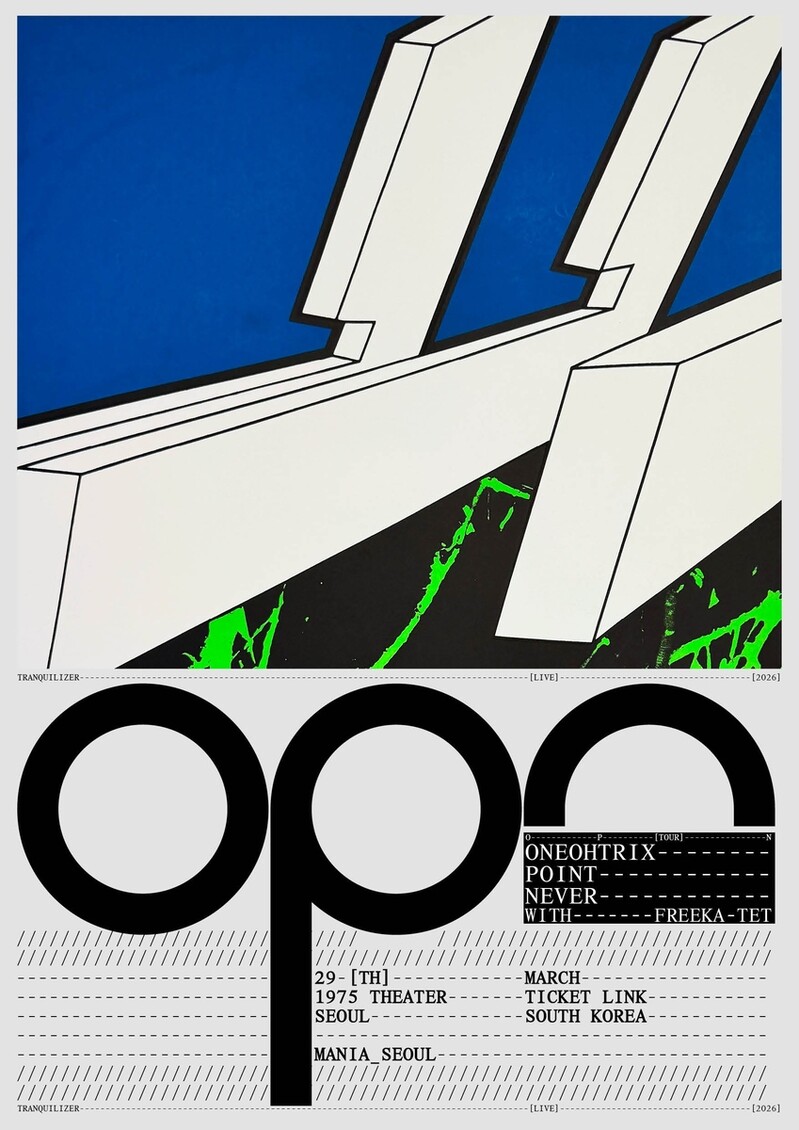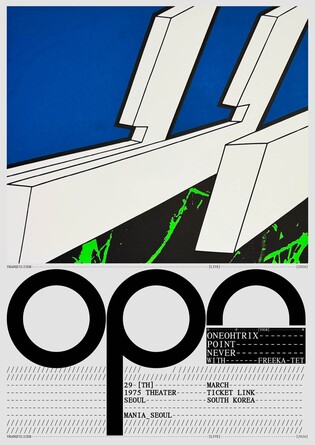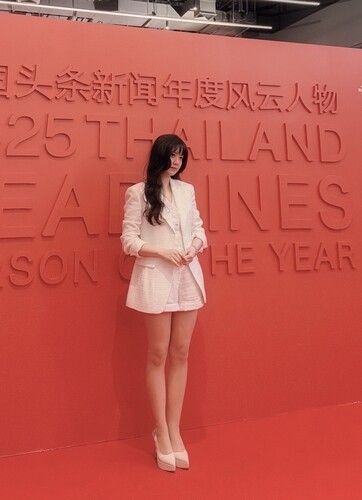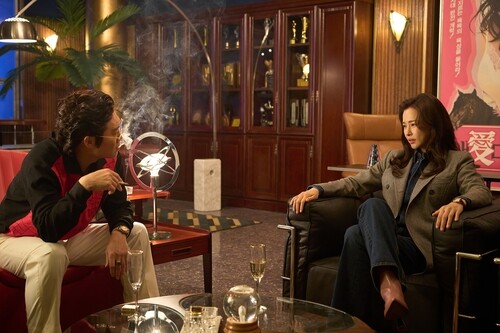 |
| ▲ This still of Netflix Original Series "Aema," starring South Korean actress Lee Hanee, is provided by the OTT giant. (PHOTO NOT FOR SALE) (Yonhap) |
SEOUL, Aug. 22 (Yonhap) -- Netflix’s new series "Aema," released Friday, sheds light on South Korea’s 1980s film industry through the story of the making of "Madame Aema," a film that became emblematic of the era’s erotic cinema.
The 1980s marked a turbulent decade, as the Chun Doo-hwan regime rolled out the so-called "3S" (Sports, Screen, Sex) policy, a cultural strategy aimed at diverting attention from prolonged military dictatorship. While politically oppressive, the policy energized Chungmuro, the heart of the Korean film industry, leading to an explosion of erotic films as censorship eased and audiences flocked to theaters.
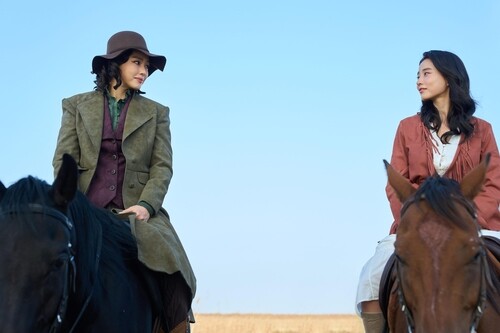 |
| ▲ This still of Netflix Original Series "Aema," starring South Korean actress Lee Hanee, is provided by the OTT giant. (PHOTO NOT FOR SALE) (Yonhap) |
"Aema" centers on Shin Sung Films, led by CEO Koo Joong-ho (Jin Seon-kyu), who plans to ride the 3S wave with a provocative new project. But top actress Jung Hee-ran (Lee Ha-nee), who has earned international acclaim, refuses further nude scenes despite agreeing to appear in films. An audition is held for the lead role in "Madame Aema," and Shin Joo-ae (Bang Hyo-rim), a factory worker by day and nightclub dancer by night, is cast.
The drama unfolds as a seasoned star scarred by the industry and a bold newcomer brimming with raw ambition come together to make a film.
At its core, "Aema" is about solidarity. Initial rivalry between Hee-ran and Joo-ae gives way to mutual respect and deep understanding. Joo-ae names Hee-ran as the person she admires most, while Hee-ran praises Joo-ae’s natural acting, telling her, “You laugh well, cry well, and act like yourself.” Their bond extends beyond the film set: Hee-ran shields Joo-ae from predatory demands at high-level gatherings, and Joo-ae rescues Hee-ran from imminent arrest on horseback.
In one pivotal scene, Joo-ae appears on a Japanese talk show after the film’s success. Asked what it feels like to live as a “sexy star” in Korea, she replies:
“It feels like being in the ring. You endure with grit, with spirit, with toughness, but no matter how hard you fight, one day you might get knocked out. Still, what matters is fighting every single day, and that alone gives meaning. So there’s nothing to fear. I hope people don’t forget this — we are still in the ring together.”
The line resonates beyond the characters, serving as a tribute to actresses of the 1980s and to anyone still fighting their battles today. The special appearance of actress Ahn So-young, the original "Madame Aema" star, in the finale as a presenter of a lifetime achievement award underscores this message.
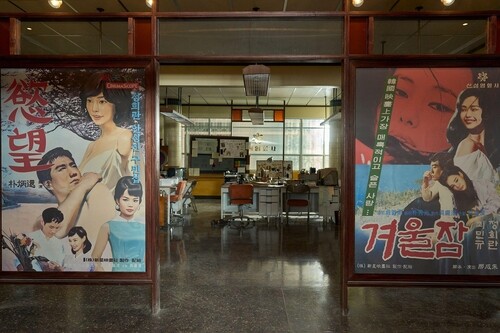 |
| ▲ This still of Netflix Original Series "Aema," starring South Korean actress Lee Hanee, is provided by the OTT giant. (PHOTO NOT FOR SALE) (Yonhap) |
The series also meticulously recreates the cultural texture of 1980s Korea: hand-painted Chungmuro theater signs, the Cheongmaek Café known as a filmmakers’ gathering spot, and movie scripts typed on typewriters. The makeup of the era — neon eye shadow and bright red lips — and the fashion of voluminous hair and broad shoulder pads add vivid detail.
But "Aema" avoids romanticizing the decade. It shows the darker side of the industry: Mina (Lee So-i), an aspiring actress, dies after being forced to inhale drugs at a client gathering, while Koo Joong-ho is beaten during an interrogation at Namsan following Hee-ran’s revelations. The series highlights contradictions of the period, where censorship persisted despite the 3S policy and actresses were still expected to entertain officials even as the nation celebrated winning the bid to host the 1988 Seoul Olympics.
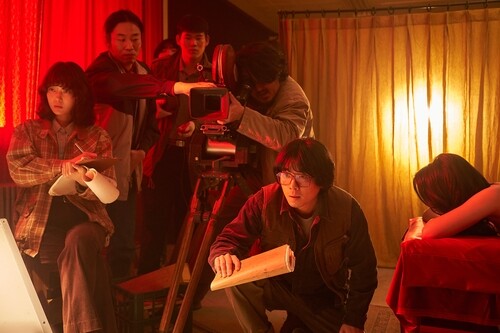 |
| ▲ This still of Netflix Original Series "Aema," starring South Korean actress Lee Hanee, is provided by the OTT giant. (PHOTO NOT FOR SALE) (Yonhap) |
Despite heavy themes, the show maintains comedic elements. Director Kwak agonizes over finding alternative Chinese characters for "Aema" to avoid censorship, while absurd filmmaking experiments mix eroticism with grotesque and nonsensical comedy — such as a male actor tied with red ropes and hung from a balcony.
Scenes of staff reluctantly acting as body doubles in explicit shots, or actor Hyuh-hyuk (Hyun Bong-sik) flaunting his fatal charm, provide both discomfort and humor. Although rated adults-only, critics note the series is not overtly sensational, as it refrains from objectifying women’s bodies or exploiting sex scenes. For viewers expecting titillation akin to "Madame Aema," however, the lack of eroticism may come as a disappointment — a reaction the series seems to anticipate as part of its conclusion.
(C) Yonhap News Agency. All Rights Reserved




















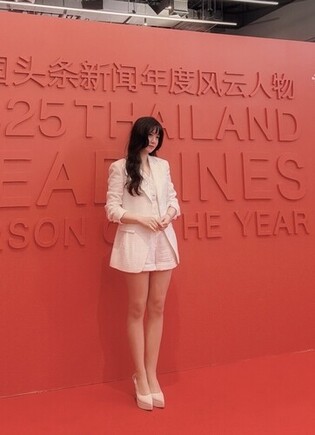



![[가요소식] 베이비몬스터,](/news/data/20251219/yna1065624915960276_172_h2.jpg)
